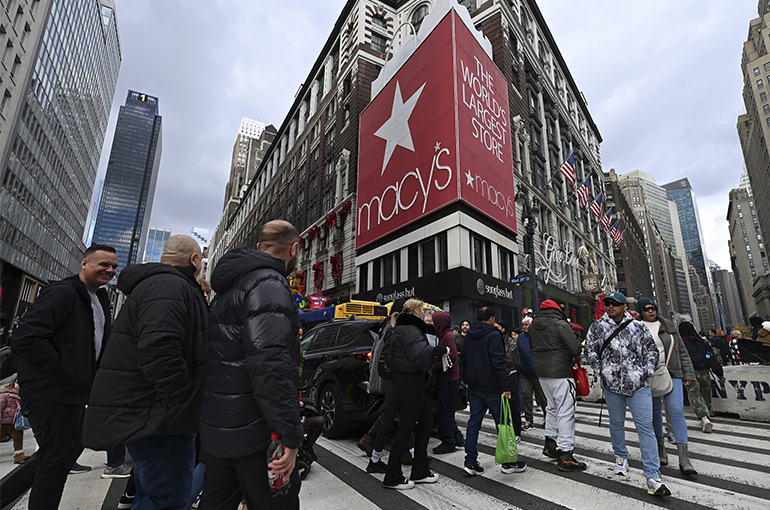 Trump's Priority on Taking Office Will Be Boosting US Economy, Peking University Scholar Says
Trump's Priority on Taking Office Will Be Boosting US Economy, Peking University Scholar SaysYicai) Jan. 20 -- Donald Trump’s primary focus once he is inaugurated as the 47th president of the United States later today will be to turbocharge the US economy, the former dean of Peking University’s School of International Relations, said in an interview with Yicai.
To achieve this goal, his policies will inevitably affect other countries, said Jia Qingguo, who is also a member of the Standing Committee of the National Committee of the Chinese People's Political Consultative Conference. In general, US politics have always prioritized domestic issues, and Trump is no exception, he added.
For example, Trump, guided by his "America First" stance, advocated raising tariffs to correct the US trade deficit, Jia said. And in response to the problem of drug abuse in the US, due to the difficulty in controlling the issue locally, countermeasures were taken at the international level.
Excerpts from the interview are given below:
Yicai: In the Trump 2.0 era, how should China and the US manage their bilateral relationship?
Jia Qingguo: From China's perspective, the priority is to stick to principles and the bottom line. For example, in terms of security, we must insist on upholding the bottom line of sovereignty. In terms of political systems, we also need to establish a clear position.
In areas where both sides have a common interest, cooperation should be strengthened. For example, China recently rolled out a 30-day visa waiver for a number of countries, including the US, which is a policy in line with China's interests.
Yicai: Recently, Trump made a series of unconventional remarks on Canada, Greenland and the Panama Canal. Does this reflect a new direction in his foreign policy? Or is Trump trying to divert attention by creating new issues?
JQ: It’s more likely that Trump's statements stem from his personal belief system. Trump's mindset is markedly different from contemporary mainstream views. For example, his understanding of fair trade is that the trade volume between the two sides should be completely equal, and USD100 of imports should be exchanged for USD100 of exports. However, in the 21st century, the global production and supply chains have become deeply integrated and products often involve parts and technology patents from multiple countries. Therefore, the meaning of fair trade has changed.
As far as territorial issues are concerned, Trump believes that the US can enhance its status and influence and safeguard its national interests by expanding its territory.
Yicai: Trump’s first term in office redefined alliances with an "America first" foreign policy. Will this move lead to the loosening or even disintegration of the US alliance system? How will the global strategic landscape change?
JQ: Trump's "America First" policy does have some impact on the US alliance system, but the extent of the impact depends on the direction of Trump's future policies.
The US alliance system is relatively solid. It is based on close economic and trade relations and a high degree of similarity in values and political systems. Unless the US shifts from a democratic to a non-democratic system under Trump's leadership, this alliance system is likely to remain in place for a long time.
Editor: Kim Taylor